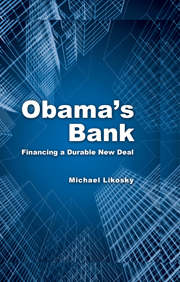9 - Transparency
Published online by Cambridge University Press: 05 June 2012
Summary
“Electric Light the Most Efficient Policeman”
A central theme of this book has been how policy-makers promote infrastructure banks and P3s as an effective way to advance public values. In doing so, they point to the banks as exemplars of forward-looking planning that make effective use of companies to accomplish goals. Increasingly, these international banks and P3s are presented as inherently progressive institutions. For instance, at a 2007 Roundtable with then–Treasury Secretary Henry Paulson, California Governor Arnold Schwarzenegger set out the basic argument that we are as likely to hear from former Vermont Governor Howard Dean or Pennsylvania Governor Ed Rendell as from former Florida Governor Jeb Bush or former Speaker of the House Newt Gingrich:
As we have seen in Europe very successful public-private partnerships, we have seen it in British Columbia and in Vancouver, where they have wonderful public-private partnerships, or P3s as I call it, where trade is happy, the trade unions are happy, the private sector is happy, the politicians are happy, the people are happy. So, it's a win/win situation. That's what we want to do also in California.
These unqualified bipartisan endorsements of the international infrastructure banks and P3s as win-win propositions not only paint in primary colors, but they also distort the picture. Moreover, they impede grounded discussions of how to model an accountable institution and projects.
The accountability problems are aggravated by the fact that we are getting off on the wrong foot with them in two ways. The first wave of U.S. P3 deals since the 1980s was mainly tax-shelter schemes, a series of Sale-in, Lease-out arrangements and tax-depreciation road contracts. This class of P3s has accountability problems built into its DNA and is prone to degrading public assets rather than cultivating them.
- Type
- Chapter
- Information
- Obama's BankFinancing a Durable New Deal, pp. 159 - 186Publisher: Cambridge University PressPrint publication year: 2010



